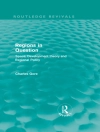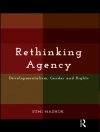This clearly written and provocative text outlines the wide range of epistemological and metaphysical pillars of research.
In a clear, easy to follow style, the reader is guided through an array of concepts that are defined, explained and made simple. With the aid of helpful examples and case studies, the book challenges the prevailing modes of thinking about qualitative inquiry by showcasing an immense variety of philosophical frameworks. Armed with a strong understanding of this philosophical backbone, students will be able to choose and defend a ‘pick and mix’ of research methods that will uniquely complement their research.
- Empiricism
- Rationalism
- Realism
- Skepticism
- Idealism
- Positivism
- Post-positivism
- Idea-ism
- Hermeneutics
- Phenomenology
- Social Ontology
- Quantum Mechanics
Essential reading for new and experienced researchers, this ‘must’ for any social science bookshelf will help unlock a new level of research creativity.
قائمة المحتويات
Part I: Qualitative Inquiry and Philosophy
Introduction: Situating Metaphysics and Epistemology in Qualitative Research
Part II: Key Epistemological and Metaphysical Problems
In Search of Truths: Empiricism Versus Rationalism
Scepticism, Idea-ism and Idealism
German Idealism, Phenomenology, and Hermeneutics
Realism, its Varieties and Contenders
Part III: Intangible Realities
Social Ontology
Quantum Reality: Contemporary Views of the Things-in-Themselves
Part IV: Philosophy in Qualitative Research
Conclusions: On Academic Creativity and Philosophical and Methodological Freedom
عن المؤلف
Tomas Pernecky is with the Faculty of Culture and Society at the Auckland University of Technology, New Zealand. He is an advocate of postdisciplinary approaches to knowledge and post-paradigmatic modes of thinking – articulated recently in Epistemology and Methaphysics for Qualitative Research. His scholarly contribution and wide-ranging interests extend to the fields of tourism and events studies which he employs as contexts for examining a variety of philosophical, conceptual, theoretical, and methodological issues.












